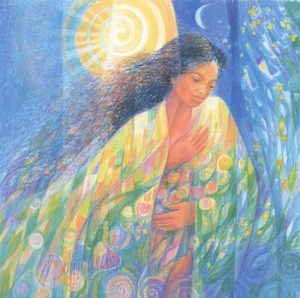
Surely the time has come to respond with love and compassion to historical and systemic racism embedded in our relationships and interactions in Australia.
National Aboriginal and Islander Day Observance Committee (NAIDOC) week was first commemorated as a Day of Mourning and Protest on 26 January 1938. Aboriginal people marched in silent protest, walking through Sydney from the Town Hall to Australian Hall in Elizabeth Street.
The protest was arranged following sesquicentenary anniversary celebrations which included a parade, a sailing regatta, a lawn bowls tournament, and a re-enactment of the arrival of the First Fleet. When the protestors arrived at Australian Hall they were required to enter through the back door. This march was one of the first civil rights protests in the world.
I wonder what it felt like for an Aboriginal person, witnessing the re-enactment of the First Fleet coming into Sydney Cove. What Aboriginal and Torres Strait Islander People had suffered can only be described as warfare, brutality and slavery for 150 years.
We know 10,000 Aboriginal and Torres Strait Islander People were killed in 400 massacres, and whole communities died from diseases caught from the newcomers. They were violently forced from their land and placed on reserves and then needed a permit to leave. They did not have access to land to hunt for bush foods, whilst being fed rations that did not sustain them.
Generations of their children were permanently removed and placed on missions suffering physical, sexual, emotional abuse and neglect. They were forced to work as slaves without payment, were unable to own land and needed permission to marry. They were forbidden to speak their own language and were jailed if they did and could not hold ancient spiritual and cultural ceremonies. They were regarded as pagans and were forcibly indoctrinated into the Christian faith. Representatives from the Aboriginal Protection Board had total control over their lives and all of this without being given the dignity of citizenship.
Aboriginal and Torres Strait Islander People, in many situations, continue to be blamed for their circumstances without acknowledgement of the impact of colonisation and racism. Two Aboriginal Elders, who organised the protest, described what they were feeling at the time of the 150 year sesquicentenary celebrations;
Following the Day of Mourning, on 31 January 1938, twenty Aboriginal people presented to Prime Minister Joseph Lyons and his wife Enid a proposed national policy for Aboriginal People. To his credit Prime Minister Lyons heard of their protest and initiated a meeting with Aboriginal leaders.
They called for the Commonwealth Government to control all Aboriginal matters; a Ministry of Aboriginal Affairs; an administration board with Aboriginal representation; full citizen status for all Aboriginal people and civil equality with white Australians, including, equality in education, labour laws, workers compensation, pensions, land ownership and wages.
Unfortunately, their pleas were not actioned as without Constitutional recognition of First Nations People any Commonwealth action by the Prime Minister of the day was not possible.
In 2023 let’s honour the NAIDOC theme, For Our Elders, by Listening to Elders across the generations;
In 2017 Aboriginal and Torres Strait Islander People, once again, graciously presented another plea to the People of Australia for Voice, Treaty and Truth-Telling in the Uluru Statement from the Heart. In a nation and world deeply divided we need to act to achieve racial justice and equity. Racism keeps us all back from being our best.
It is time, in NAIDOC Week 2023, 85 years after the sesquicentenary anniversary celebrations, to walk with, recognise and celebrate the rich culture, beauty and wisdom of lives lived for 65,000 years. The oldest living culture in the world.
Kenise Neill rsj
